You can let stress beat you up, or you can put it to work in…
Are you courageous and strong enough to embrace new ways of thinking?
A friend told me, “My father reared me to believe that changing your mind is a sign of weakness.” Along these same lines, I recently heard from a client that changing one’s mind is a sign of failure since you weren’t completely right at first.
***Click here to listen to this article through our Discover Your True Course Podcast channel.
How much agreement do you have with these ideas? As a life-long learner in an information age, I find them troubling. Needed change of one’s thinking is essential for living, learning, and thriving. Changing one’s mind and embracing new ways of thinking requires courage and great strength.
Here are some common areas where you can get stuck or frozen in your unexamined beliefs or assumptions.
- Political orientations
- Beliefs about how the world works
- Ideologies
- Philosophies of life
- Interpersonal relationships
- Cultural biases
- Religion
- Stereotypical attitudes and practices
- Moral-ethical issues
In which of these areas might you be stuck in your ways of thinking? In which are you unwilling to take another look at what you think or hold as true?
You can be stuck because you are unaware of or blind to alternatives. Or you may refuse to take an unbiased look at your beliefs, thought habits, and perspectives.
You may refuse to change your mind because you fear
- It means that you were wrong before (more or less).
- Others will judge you in unhelpful ways.
- You will be embarrassed to have to say, “I was wrong.”
- Changing your mind about one thing will create a cascade of needed changes.
But, if you refuse to change your mind when needed, it means
- You are stagnant (stuck, frozen) and no longer open to new information.
- You stop growing.
- You will encounter more conflict with others and in yourself.
- You eventually become irrelevant.
Being curious, open, and flexible in your thinking is important for learning, adapting, relating well to others, and thriving in life. However, such flexibility is not a “wishy-washy” approach but rather a well-tempered, reasoning approach that acknowledges that you don’t have the answers but would like to have more of them.
Ways of thinking can become outdated and no longer helpful for living and relating. When you continue with outdated, unhelpful beliefs, your living will become dull and your influence insignificant. Jack Mezirow, an adult learning theorist, points out that some assumptions and expectations can create problems for us and others. Beliefs and perspectives need adjustments to make them more “inclusive, discriminating and emotionally open to change.” Making needed adjustments will more likely generate beliefs and opinions that are more true to reality or justified to guide your actions in life.
Be strong and courageous. You can reflect on your thinking and judge whether your thinking is true and helpful for guiding your actions. Many experts, including me, believe it is impossible to do this alone. A coach can help you sharpen the skills of self-reflection, use reflective judgment, and support you in adjusting your thinking so that you are continually growing to discover patterns of thought and perspectives that will serve you best in this New Year.





